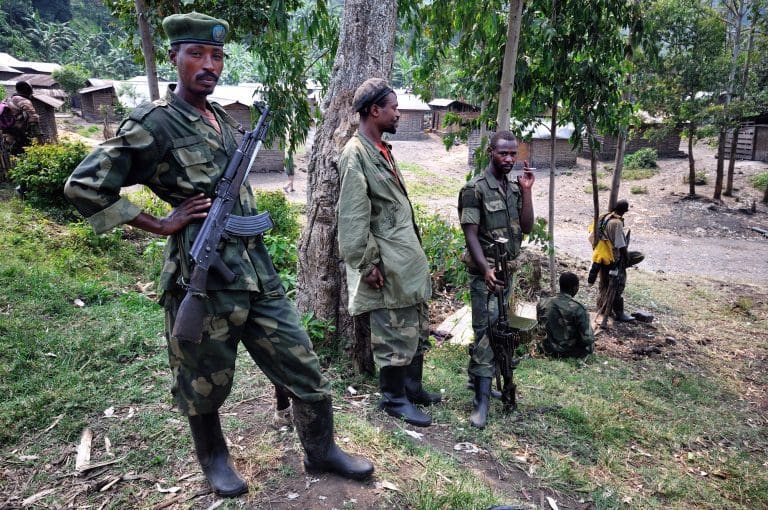Since the beginning of the M23 rebellion in the east of the Democratic Republic of Congo (DRC), the country’s officials take advantage of every international forum to denounce Rwanda’s alleged support of the rebel group.
For several months, Kinshasa and Kigali have not been speaking the same language. The Congolese authorities say they are convinced that Rwanda, despite its denials, supports the March 23 Movement (M23), an armed group from a former Congolese Tutsi rebellion that took up arms at the end of 2021 and caused the death and displacement of several people. The Democratic Republic of Congo (DRC) is taking advantage of every opportunity to speak on the international scene to denounce the position of its Rwandan neighbour on this issue.
“For more than 20 years, DRC has been the scene of conflicts and confrontations by certain countries, notably Rwanda, which supports the M23 terrorists,” deplored the Congolese Minister of the Environment, Ève Bazaiba Masudi, challenging a proposal by Rwanda at the fifteenth Conference of the Parties (COP15) on biological diversity of the United Nations, which ended on Monday 19 December in Montreal, Quebec.
According to Radio France Internationale (RFI), Kigali was asking for the establishment of funding mechanisms for the protection and preservation of biodiversity. But Ms Masudi retorted that “DRC is experiencing worse situations than in Ukraine”, referring to the Russian invasion which continues to cause terrible economic consequences for the world, particularly in Africa. She therefore called on the international community not to give in to “double standards”.
While several countries have adopted a position of neutrality, this is not the case of the United States and France, which clearly blame Kigali. “We condemn Rwanda’s support for the M23 group and we ask that the Luanda and Nairobi processes be fully implemented,” said Anne-Claire Legendre, spokesperson for the French Foreign Ministry on Monday.
Paris and Washington raise their voices
On December 15, on the sidelines of the U.S.-Africa summit, Washington also asked Rwanda to work for the withdrawal of the M23 rebel group. Present at the meeting, Rwandan President Paul Kagame told US Secretary of State Anthony Blinken that the conflict in eastern DRC should “not be blamed on Rwanda, given that more than a hundred armed groups, not just the M23 rebel group, are active in the country. For Kagame, the conflict between the M23 and the Congolese army is rather the result of Kinshasa’s inability to resolve its long-standing internal problems with Congolese of Rwandan origin.
In early December, a preliminary UN investigation claimed that at least 131 civilians, including 17 women and 12 children, were killed between 29 and 30 November in eastern DRC, the scene of violence by armed groups. It explained that these acts were perpetrated in Kishishe and Bambo, two villages in Rutshuru territory, in North Kivu province, “as part of a campaign of killings, rapes and abductions and looting against these two villages in retaliation for clashes between the M23 and the Democratic Liberation Forces of Rwanda (FDLR-FOCA) and the Mayi-Mayi Mazembe groups and Nyatura Coalition of Movements for Change.
In the communiqué issued by the United Nations Stabilisation Mission in the Democratic Republic of Congo (MONUSCO), the investigators state that they have not been able to access the villages concerned, but do not rule out a change in the death toll of 131 civilians. For its part, the government accuses the M23 rebels of having killed at least 272 civilians during the assaults at the end of November.
ODL/cgd/lb/abj/APA


